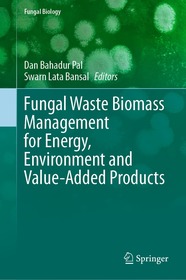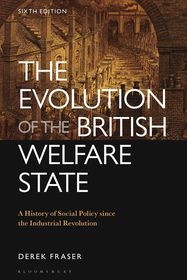
Fungal Waste Biomass Management for Energy, Environment and Value-Added Products
Series: Fungal Biology;
- Publisher's listprice EUR 213.99
-
88 752 Ft (84 526 Ft + 5% VAT)
The price is estimated because at the time of ordering we do not know what conversion rates will apply to HUF / product currency when the book arrives. In case HUF is weaker, the price increases slightly, in case HUF is stronger, the price goes lower slightly.
- Discount 12% (cc. 10 650 Ft off)
- Discounted price 78 102 Ft (74 383 Ft + 5% VAT)
Subcribe now and take benefit of a favourable price.
Subscribe
88 752 Ft

Availability
printed on demand
Why don't you give exact delivery time?
Delivery time is estimated on our previous experiences. We give estimations only, because we order from outside Hungary, and the delivery time mainly depends on how quickly the publisher supplies the book. Faster or slower deliveries both happen, but we do our best to supply as quickly as possible.
Product details:
- Publisher Springer Nature Switzerland
- Date of Publication 11 March 2025
- Number of Volumes 1 pieces, Book
- ISBN 9783031825989
- Binding Hardback
- No. of pages325 pages
- Size 235x155 mm
- Language English
- Illustrations XIII, 325 p. 34 illus., 27 illus. in color. Illustrations, black & white 644
Categories
Long description:
Bioconversion of waste is a natural process aiding in the recovery of resources and biotechnology-facilitated natural recycling processes. Biotechnological treatments to food processing wastes found in large quantities can produce useful end products, such as microbial biomass protein, while wastes are also purified during the process. Fungi as microorganism and as fungal biomass have been used for many applications such as enzyme production for biomedical, biorefinery, and other industries.
Additionally, environmental pollution is a crucial problem for the entire world, and it is growing continuously. Continuous growth of pollution is resulting harmful changes like global warming and pollution of air, water, and soil. These changes are directly associated with various activities like uncontrolled agricultural practices, deforestation, urbanization, accumulation of huge amounts of agricultural and food waste, improper dumping of naturally occurred waste and forest residues, etc. Therefore, proper utilization of these wastes may be a better solution for this problem.
Fungal-based biomass materials are good sources of carbohydrates, oil & fats, cellulosic content, and other useful chemical components which can be converted into value-added products for production of clean energy, bioenergy, bio-adsorbents, and useful chemicals. This book provides information, processes, and ideas for the conversion of waste into useful and consumable enzymes through biological approaches. Within the last few years, researchers have found that food and agricultural waste biomass have the potential to produce value-added products. Technological information for the production of nutraceuticals and organic acids from the agro-waste are also covered in this book.
MoreTable of Contents:
Sustainable Hybrid Composites, Constructed from Cellulose Nanofibrils and Wood Fungal Mycelium.- Fungal Waste Biomass as a Feedstock for Polylactic Acid (PLA) Production.- Utilizing Fungal Mycelium in Bio-Nanocomposites as A Replacement for Chemically Synthesized Light Weight Polymers.- Life Cycle Assessment and Techno-Economic Analysis on Setting Up of Pilot Scale Plants.- Importance of Utilizing Fungus Rather Than Bacteria for Biomass Valorization.- Extraction and Purification of Essential Oils from Food Waste Biomass.- Exploring the Potential of Fungal Biomass in the Evolution of Polylactic Acid (PLA) Biocomposites.- Biochar from Bio-Based Materials : Applications, Clean Technologies and Novel Production Methods.- Advanced Materials from Fungal Mycelium: Fabrication and Tuning of Physical Properties.- Rice Polishing as a Substrate for Fungal Biomass and Protein Production by Trichoderma harzianum and Candida utilis.- Enzymes Playing Their Specific Roles in Biomass Waste Management.- Production of Hemicellulose from Biomass and Agricultural/Food Waste Contains Lignocellulosic Materials.- Extraction and Purification of Essential Oils from Food Waste-Derived Waste Biomass.
More







